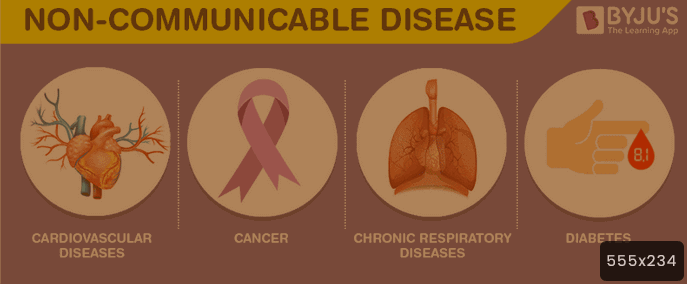Ghana and the Fight Against Non-Communicable Diseases
The lack of a national chronic disease policy, a weak health system and low lay awareness of these diseases all combine to create a serious problem for the health of the population in Ghana.
Ghana is experiencing a shift from communicable diseases to a combination of communicable and chronic non-communicable diseases. Consequently, the Government must ensure adequate logistics and infrastructure for delivering health care services. Moreover, Public-private partnerships should be formed to provide low-cost generic drugs to combat diseases.
Chronic non-communicable diseases contribute to Ghana’s disease burden
The prevalence of chronic non-communicable diseases in Ghana has increased over time and constitute a substantial contribution to the country’s overall disease burden. These illnesses affect both rich and poor communities and pose significant economic and societal costs. The lack of a national chronic disease policy, a weak health system and low lay awareness of these diseases all combine to create a serious problem for the health of the population in Ghana.
The prevalence of childhood cancers in developing countries is escalating. A recent study of teen mortalities in Ghana showed that 41% of deaths were due to NCDs. This burden poses a significant challenge for the country’s health and social development. It is important to address this problem as early as possible. Ghana must focus on addressing the underlying causes of NCDs so that we can better manage our health system and achieve a healthier future.
The prevalence of Cardiovascular Diseases CVDs in Ghana is largely associated with a sedentary lifestyle and poor dietary habits. According to the WHO, the probability of dying from a CVD in a Ghanaian adult is 20%. Moreover, CVDs are the leading causes of hospitalizations and institutional deaths.
Addressing the CVD epidemic in Ghana will require a multidimensional approach and strong political will. The health sector, non-government organizations and other stakeholders must work together to tackle the CVD epidemic. Governments should strive to develop legislation that addresses the growing burden of CVDs in Ghana. Collaborations should also be fostered to increase access to cheaper medicines.
Public-private partnerships should aim to ensure availability, affordability and accessibility of low-cost generic drugs
Non-communicable diseases are a major public health concern around the world. Although they have traditionally received less attention than infectious diseases, they account for more than 60 percent of worldwide deaths. They affect 35 million people a year and disproportionately affect the poorest countries. This has led to a double burden on the poorest countries, which has spurred an increased focus on prevention and control measures.
Despite global efforts to reduce the price of medicines, several barriers to access and affordability exist. One of these is high tariff rates applied to imported medicines. These medicines include cancer medicines such as tamoxifen and methotrexate.
Lack of access to medicines is a major problem for health systems around the world. For example, in many low and middle-income countries, access to essential medicines is limited due to high costs. In a recent study, more than 60 percent of countries had at least one statin or an angiotensin-converting enzyme inhibitor on their essential medicines lists.
As the cost of medicines rises, government and private sector organizations should take steps to lower prices. One way to improve access is to develop public-private partnerships aimed at improving the affordability of these medicines.
By Jeorge Wilson Kingson
The writer is the Chairman of the Media Alliance in Tobacco Control and Health (MATCOH)


